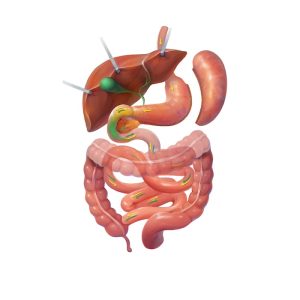 Sleeve Gastrectomy / Gastric Sleeve Mobile AL
Sleeve Gastrectomy / Gastric Sleeve Mobile AL
The gastric sleeve, also known as the sleeve gastrectomy has quickly become the most popular weight loss surgery procedure in the United States due to a combination of simplicity and effectiveness. The sleeve was originally conceived as the first part of a two-part procedure known as the Duodenal Switch (DS). Over time, it was apparent that the gastric sleeve was sufficient for most patients’ needs and came with fewer drawbacks when compared to the full DS. Today, the gastric sleeve is considered a major bariatric procedure and is covered by most insurance companies as well as Medicare.
How The Gastric Sleeve Is Performed
The gastric sleeve is performed in a minimally invasive or laparoscopic manner, meaning that five small incisions are used, instead of the traditional large single incision of open surgery. Proven benefits include a shorter hospital stay, less pain and blood loss, and generally, fewer complications.
The existing stomach pouch is cut along the greater curvature leaving about 20 to 30% of the stomach remaining. This new, smaller stomach pouch is about the size of a banana and shaped like a sleeve, hence the name. The larger portion of the stomach is removed from the abdomen. After surgery, the digestive process is almost the same as before, with the only difference being a smaller stomach holding less food.
Recovery And Results Of The Gastric Sleeve
The gastric sleeve requires an overnight stay for most patients assuming an uneventful surgery and post-op recovery.
Gastric sleeve results are generally excellent. A growing body of evidence supports the gastric sleeve as similar to the bypass in potential weight loss and disease resolution over the longer term. Patients can lose up to 70% of their excess body weight and improve or resolve most of the diseases associated with obesity. Of course, results will vary between patients.
Meet Raina, A Gastric Sleeve Patient
Benefits Of The Gastric Sleeve
- Less pain, blood loss, and shorter hospital stay as a result of the procedure being performed laparoscopically or robotically
- Approximately half of the patients will experience less hunger due to the removal of the fundus of the stomach (responsible for most of the production of the hunger hormone, ghrelin)
- Fewer nutritional restrictions as compared to gastric bypass
- Lower likelihood of experiencing dumping syndrome as compared to the gastric bypass
- No permanently implanted medical device as compared to gastric band
Risks And Considerations Of The Gastric Sleeve
- This procedure is permanent and cannot be reversed. However, in cases of less-than-ideal weight loss, it can be revised
- The gastric sleeve can worsen chronic acid reflux / GERD in some patients
- In rare cases, the staple line used to seal the separated stomach may leak
- The risks associated with a major surgical procedure include infection, pain, blood loss, and in rare cases death
The gastric sleeve, while very popular, is just one of several options available to patients suffering from obesity. Watching our online seminar, followed by a consultation with a qualified bariatric surgeon such as those in our practice is the best way to learn more about the gastric sleeve.


 Other Weight Loss Surgeries/Procedures
Other Weight Loss Surgeries/Procedures